Culture in Turkey
Experience Turkish culture
Turkey, a country with a rich cultural tradition, not only offers impressive architecture of modern art but, as an important cultural and economic centre, also contains historical sights from Ottoman architecture.
Turkish culture is rich and characterised by a long history of different civilisations and peoples. People in Turkey often follow old traditions that are deeply rooted in the country's culture. Particularly important to the people of Turkey are traditions related to family life, social interactions, religious practices and celebrations.
Turkish cuisine
Turkish cuisine is famous for its diversity, which is the result of influences from the Mediterranean, the Balkans, the Middle East and Central Asia. Traditional dishes and recipes are passed down from generation to generation and their preparation is often associated with social gatherings and celebrations.
5 typical dishes from Turkey
The following dishes reflect only a fraction of Turkey's rich culinary tradition.
1. Kebab
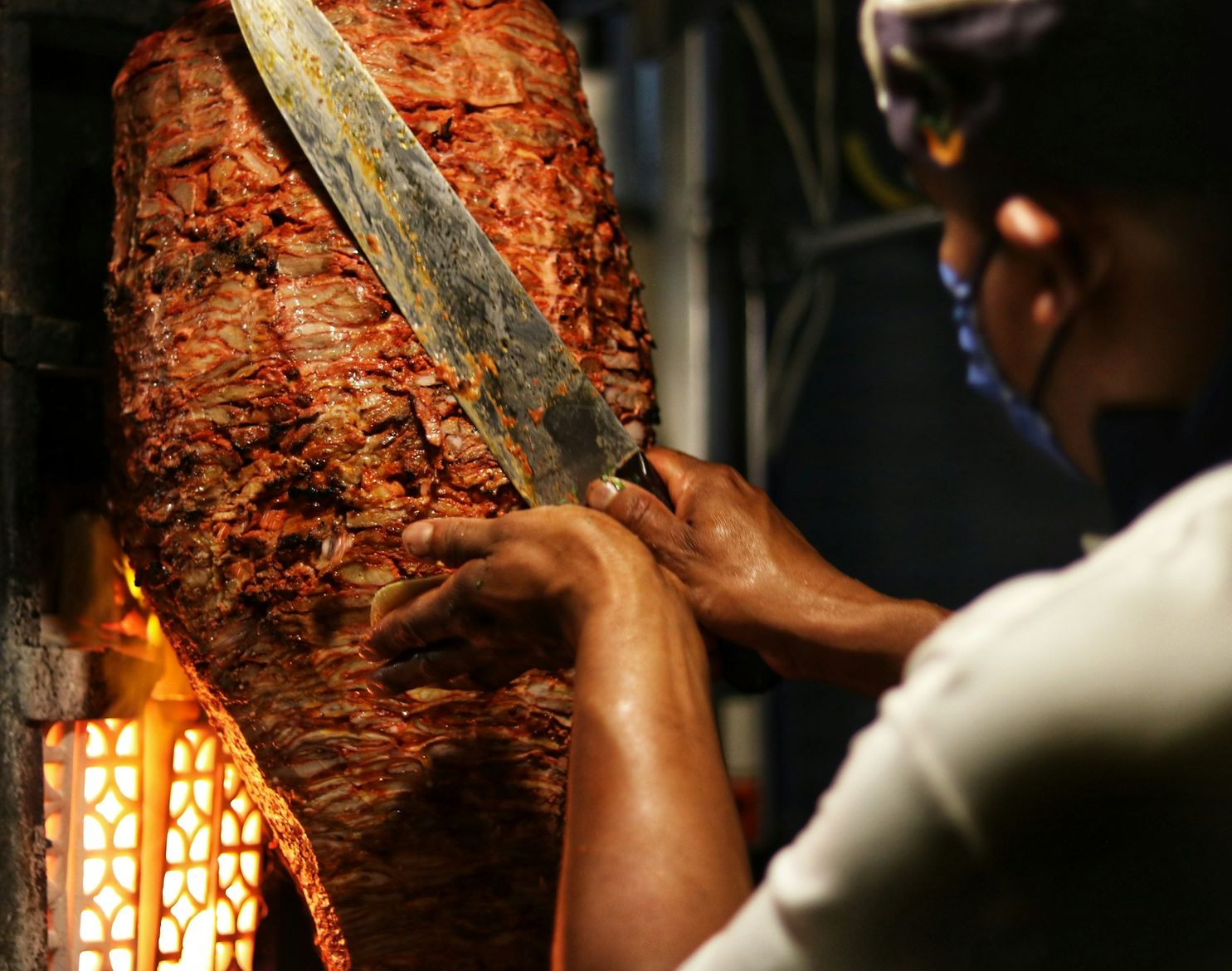
Kebab is probably the best-known, internationally most popular Turkish dish and comes in different variations. The term ‘kebab’ refers to the different types of grilled or roasted meat. The lamb, beef or chicken is often grilled and turned on skewers. The most popular types of Turkish kebab are doner kebab, Adana kebab and Şiş kebab.
There are many regional variations and individual ways of preparing kebabs, which ultimately vary the flavour of the kebab and make it a popular dish worldwide.
2. Börek
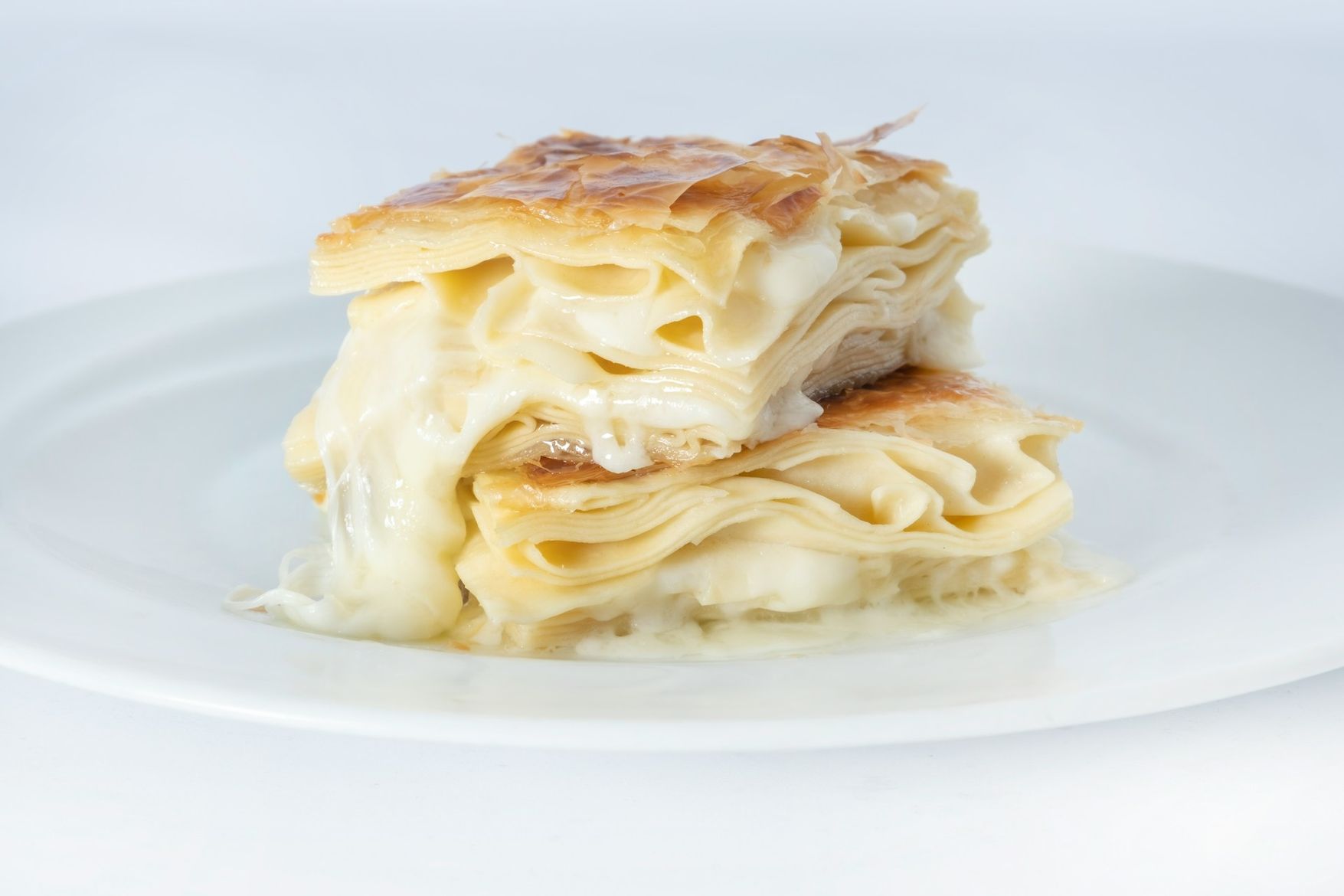
Börek is a type of pastry filled with meat, cheese, spinach or potatoes, which can be made in a wide variety of shapes and sizes.
However, the basic ingredients of the börek are always thinly rolled out dough and a filling of your choice. The preparation of the börek is an art form in itself and every family passes down its own recipes and preparation techniques from generation to generation.
3. Meze
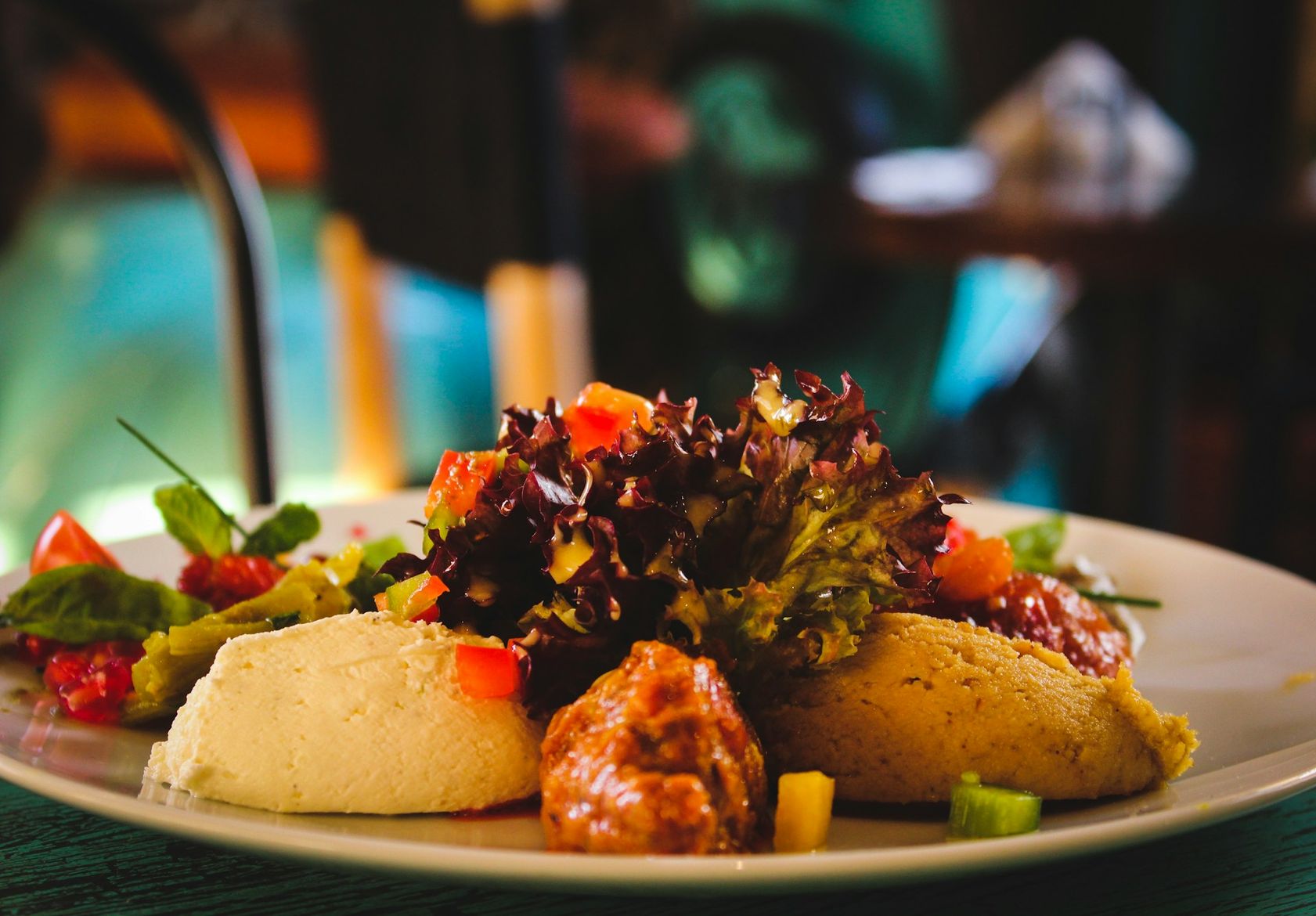
In Turkey, meze refers to various appetisers and small dishes that are served at the start of a meal. Depending on preference, they can include grilled vegetables, olives, hummus, stuffed vine leaves or other delicacies. Served with bread, meze can also be a meal in itself.
4. Lahmacun and Pide
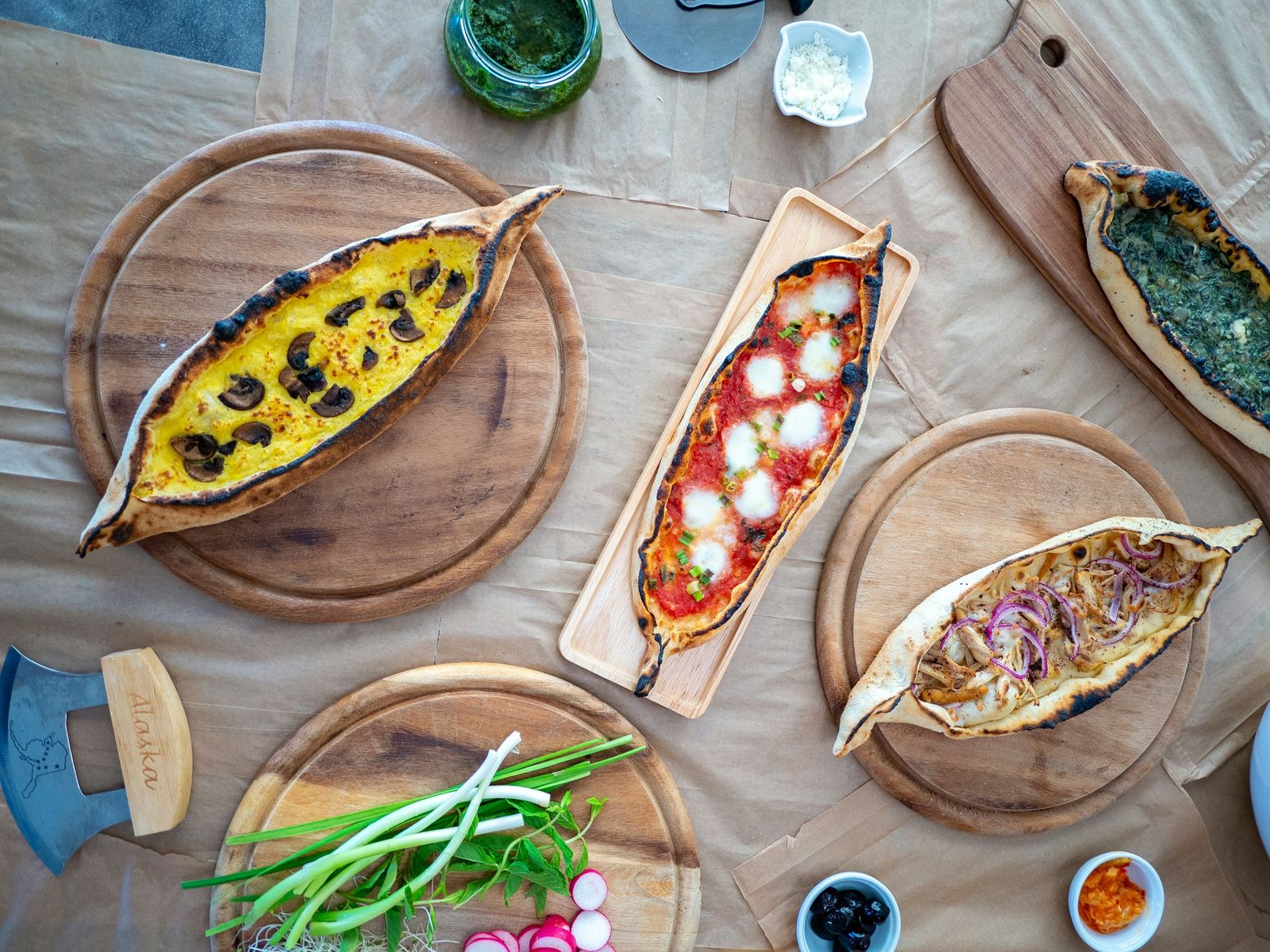
Lahmacun is a thin, crispy flatbread topped with a savoury minced meat mixture and served plain or as a side dish with lemon and parsley.
Pide is similar to a pizza, but is characterised by its longer shape and thicker crust. As with many other dough dishes in Turkey, there are no limits when it comes to the filling and toppings. Traditional toppings include minced meat (kıymalı pide), cheese (kaşarlı pide) and Turkish sausage (sucuklu pide).
5. Sweets
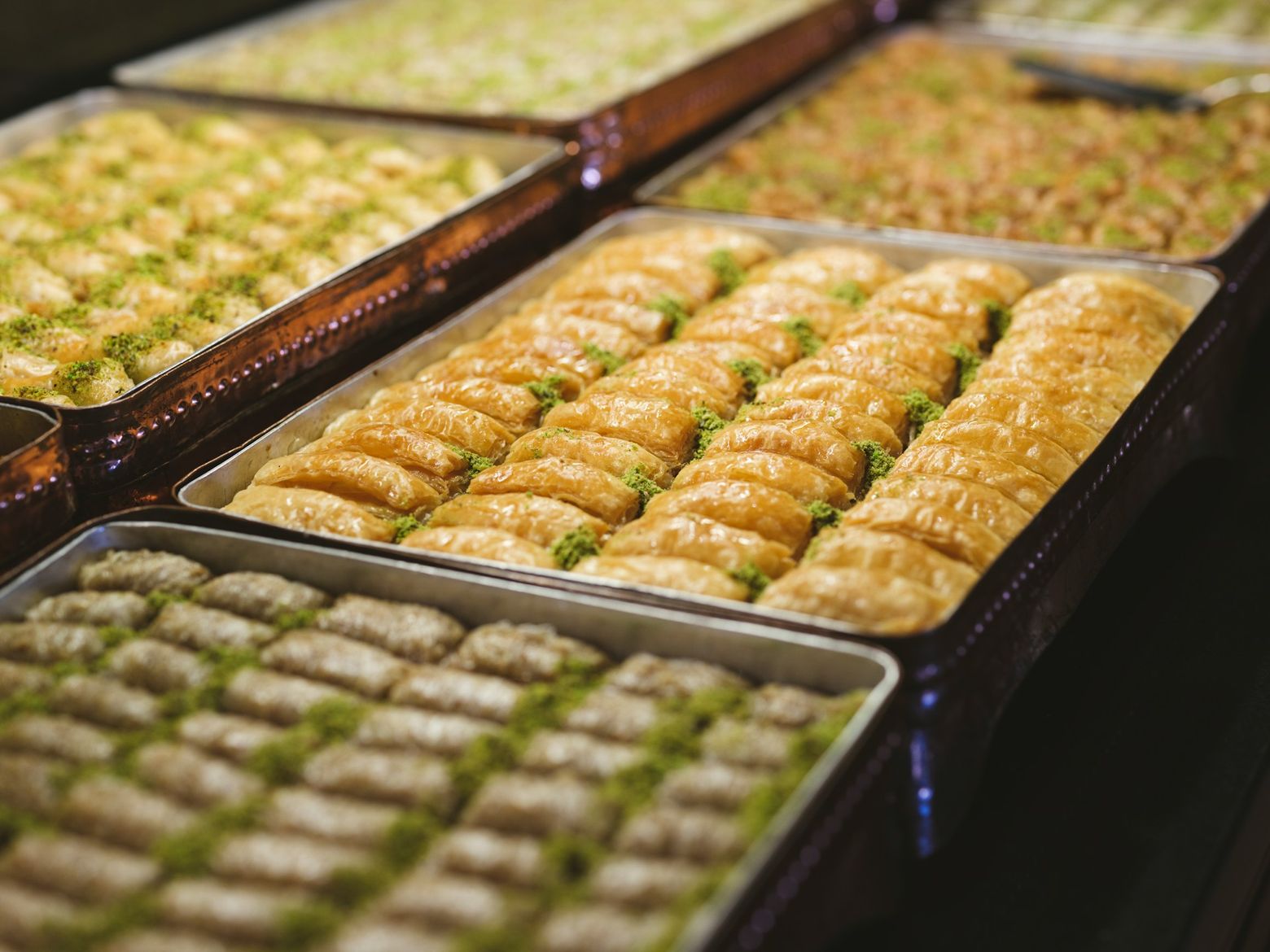
In addition to the regional, hearty specialities of Turkish cuisine, there is also a variety of desserts with rich flavours and textures.
A favourite dessert in Turkish dessert culture is baklava, a layer of thin filo pastry filled with chopped nuts such as pistachios or walnuts and soaked in a sweet syrup made from sugar, water and lemon juice.
Künefe is also a popular sweet speciality from south-eastern Turkey. It consists of thin strands of angel hair pastry filled with melted cheese and soaked in a syrup made from sugar, water and rose water, similar to baklava.
Of course, there are many other desserts in Turkish dessert culture, which are often prepared by hand and are an important part of festive occasions and gatherings in Turkey.
Drinks
Turkish tea (Çay)
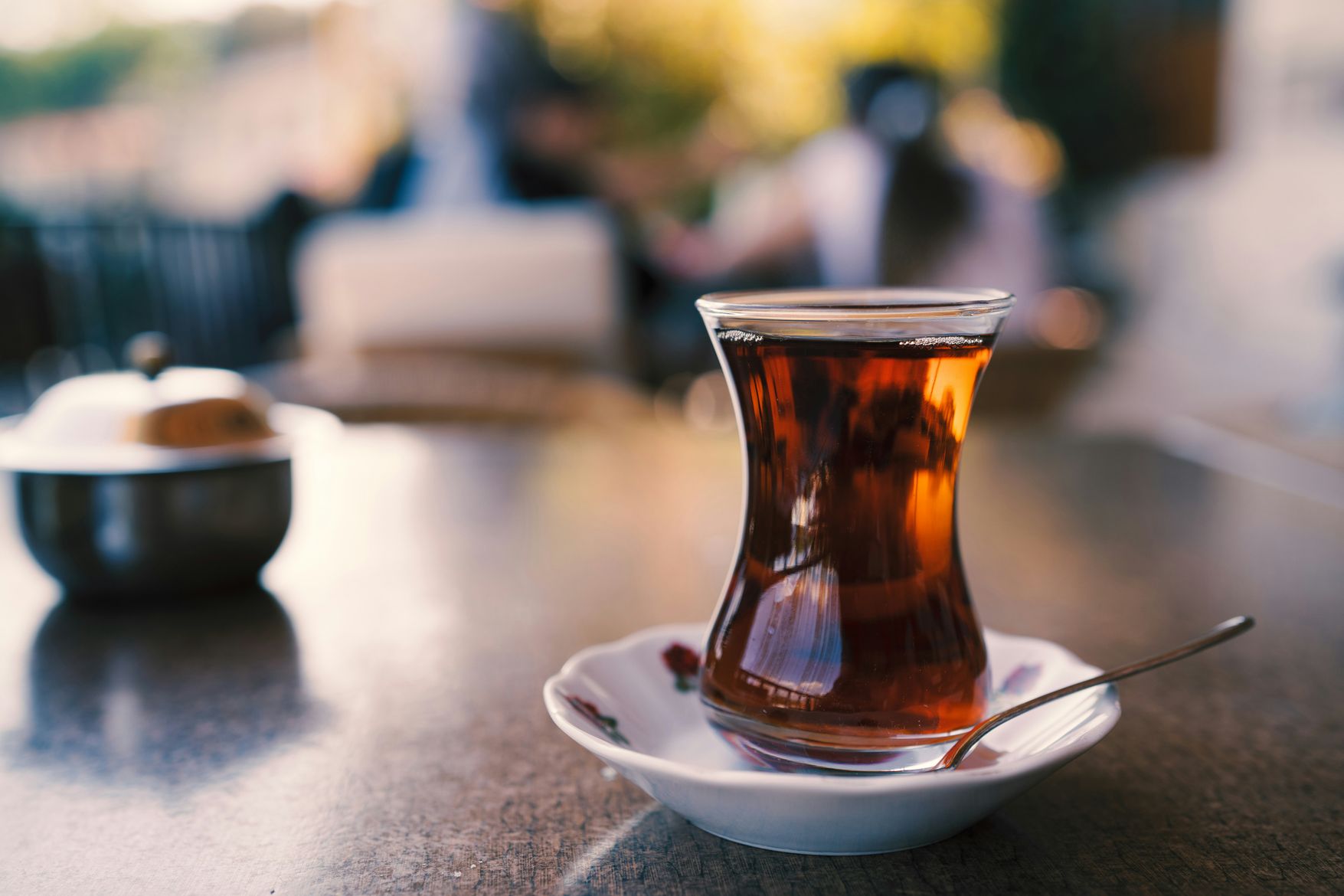
Turkish tea is the national drink of Turkey and an important part of Turkish culture. The tea is usually served in special tea glasses and is prepared strong, hot and without milk. It is a favourite accompaniment to conversations, meals and social gatherings in particular.
Mocha (Turkish coffee)
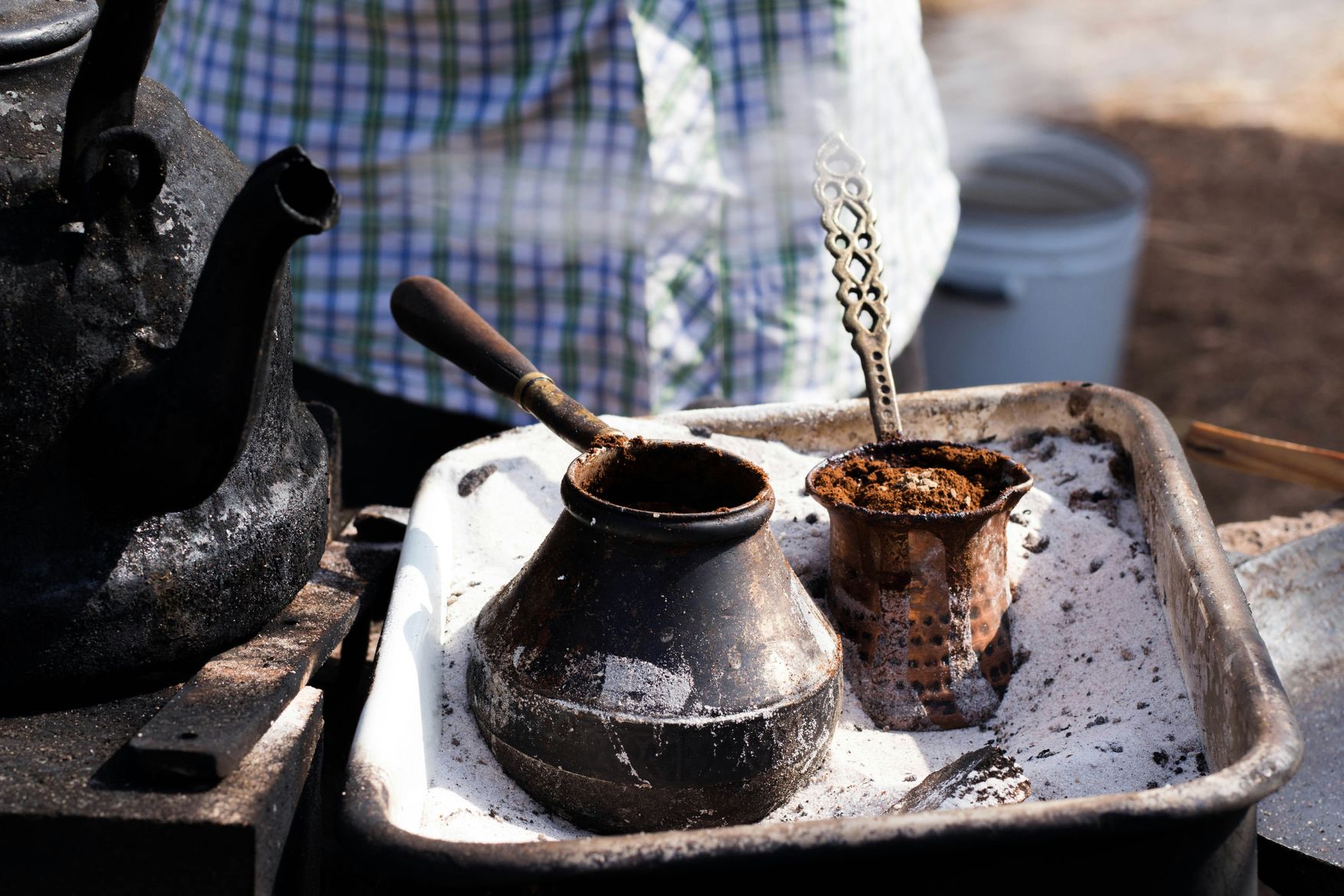
Another popular hot drink is Turkish coffee, which is a traditional way of making coffee. It is made very strong and flavoured and served in small cups. Depending on the flavour, the coffee can be made with sugar and can be sweet or bitter.
Traditions and customs in Turkey
Traditions and customs are deeply rooted in Turkish society and contribute to strengthening the community and identity.
Hospitality plays a central role in Turkish culture. Turks are known for the warm and generous hospitality with which they receive their guests. Hosts take the time to make sure their guests feel comfortable, show a genuine willingness to help them, show respect and often go out of their way to offer their guests little surprises to show their appreciation.
Religious holidays
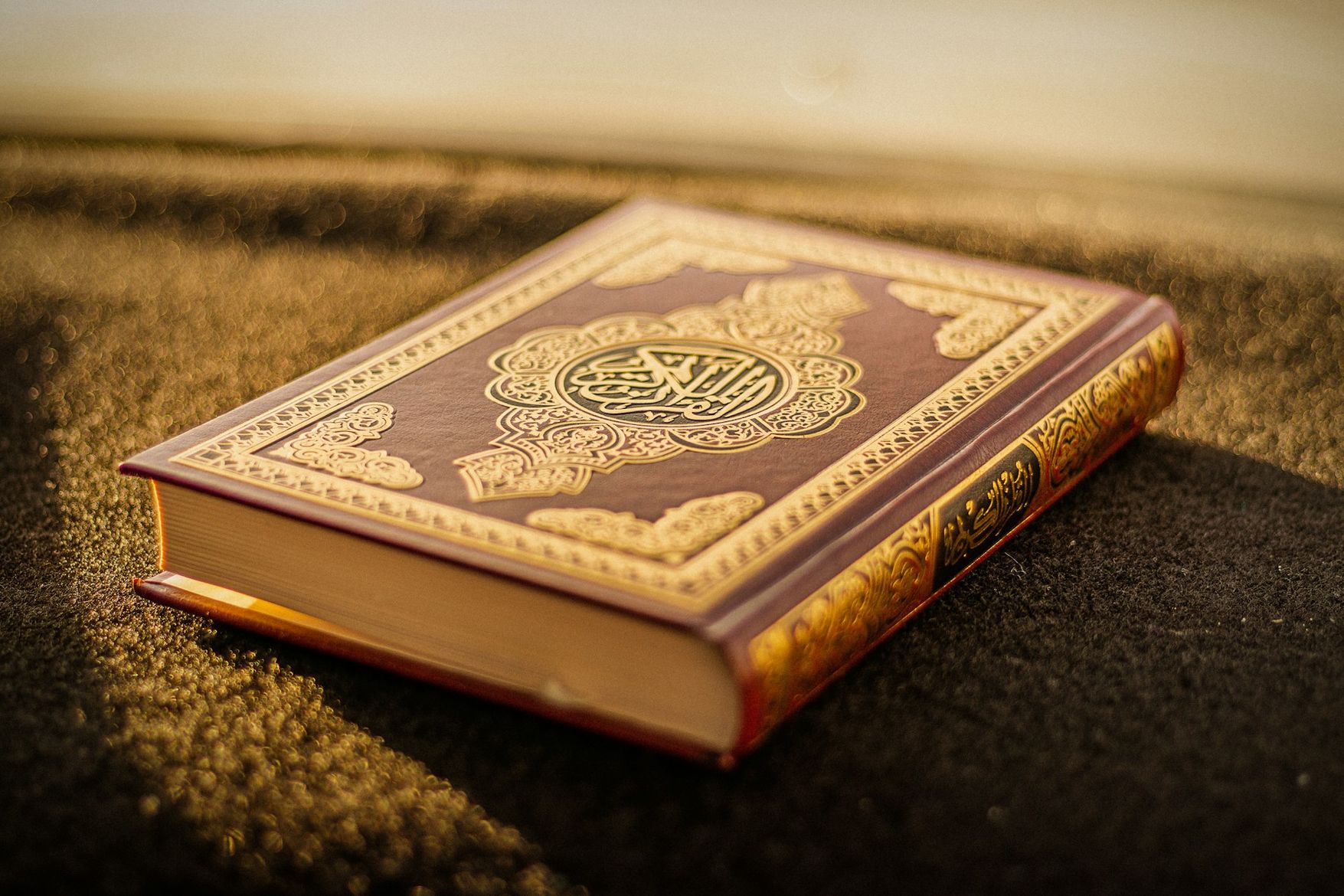
Islamic festivals such as the Feast of Sacrifice (Kurban Bayrami) and Ramadan (Ramazan Bayrami) are celebrated extensively in Turkey. On these holidays, families and communities are brought together to pray, celebrate and share food.
Wedding traditions
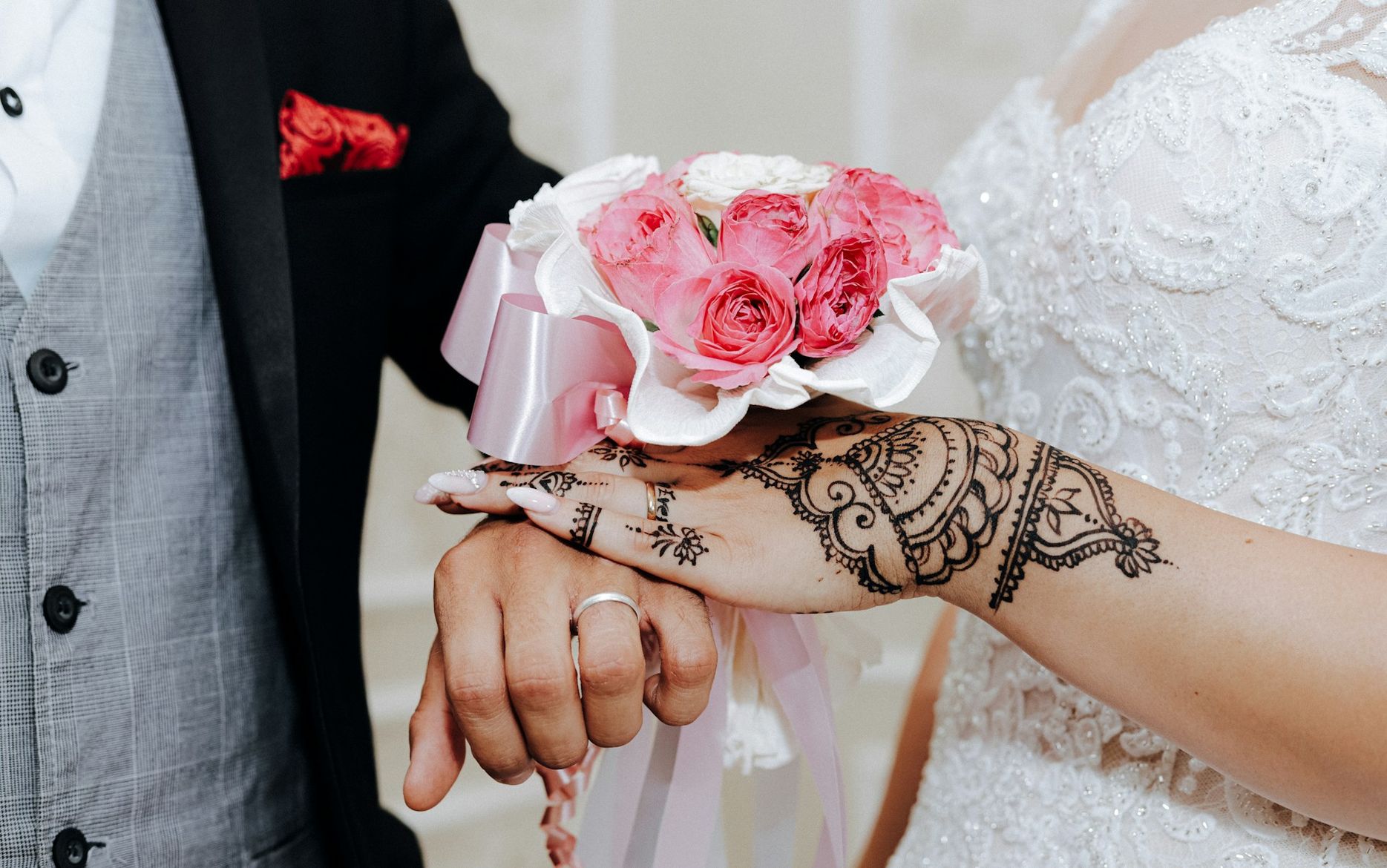
Weddings in Turkey are important and festive occasions that are accompanied by numerous traditions. Some traditions include the Henna Night, which usually takes place one or two days before the wedding. In this ceremony, the bride is painted with henna to celebrate her beauty.
In another tradition, the bride and groom are sprinkled with money by friends and relatives to express their blessings and good wishes for the future. The money is held on a cloth over the bride and groom's heads.
Hamam

The hammam is a traditional Turkish bath that has a long history and is not only used for physical cleansing but also for social interaction between all age groups, relaxation and well-being. The hammam is divided into a cold and a warm area. While the cold area serves as a changing room and relaxation area, the warm area is covered with marble slabs and has a high level of humidity.
Conclusion
Are you ready to gather new cultural impressions in Turkey and gain an insight into the lively atmosphere?
Here you can find out more about the toll regulations in Turkey so that nothing stands in the way of your holiday.
